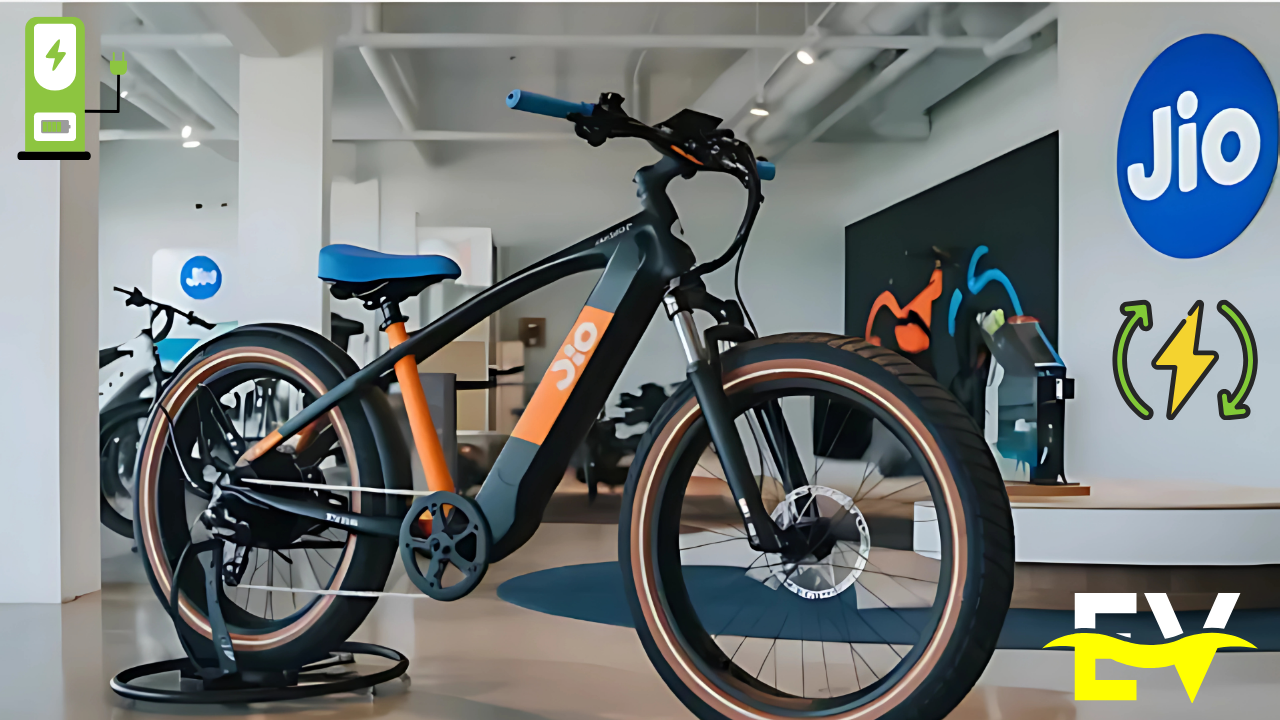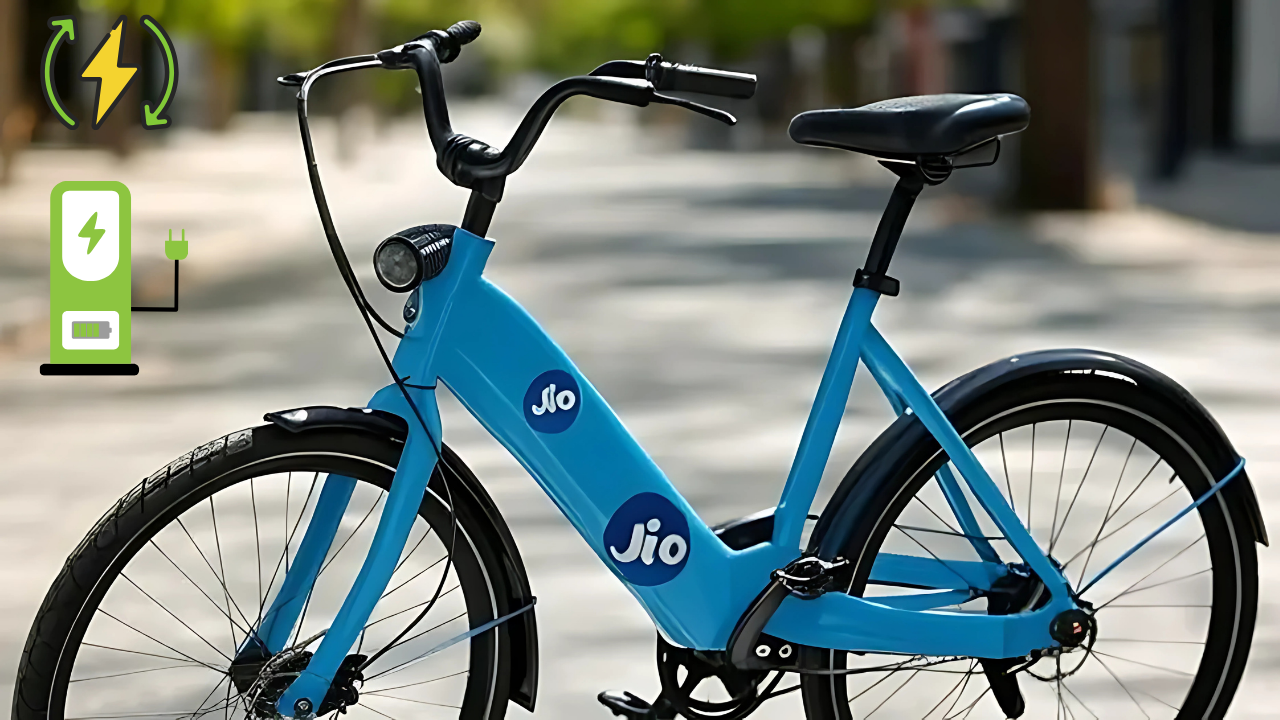India’s transportation landscape is experiencing a remarkable transformation as electric bicycles emerge as the perfect solution for urban commuting challenges. With rising fuel costs, increasing environmental awareness, and government support for electric vehicles, e-bikes are becoming the preferred choice for millions of Indians seeking sustainable and cost-effective transportation options. Discover the future of Jio Electric Cycle in India with smart features, affordable pricing, and revolutionary technology transforming urban mobility.
The Growing Appeal of Electric Bicycles
Electric bicycles represent a perfect blend of traditional cycling and modern technology. Unlike conventional motorcycles or scooters, e-bikes offer the flexibility of pedaling when desired while providing motor assistance when needed. This hybrid approach makes them ideal for navigating India’s diverse terrain and traffic conditions.
Also Read:- Harley-Davidson Electric Bike Officially Launched: Top Features & Global Highlights
The surge in e-bike popularity stems from several factors. First, they offer an eco-friendly alternative to fossil fuel-powered vehicles, contributing to reduced carbon emissions in increasingly polluted urban areas. Second, the operational costs are significantly lower compared to traditional vehicles, with electricity being far cheaper than petrol or diesel. Third, e-bikes require minimal maintenance and no complex licensing procedures, making them accessible to a broader demographic.
Revolutionary Smart Features Reshaping E-Bikes
Modern electric bicycles are no longer simple motor-assisted cycles. They’ve evolved into sophisticated machines packed with cutting-edge technology that enhances safety, convenience, and user experience.
Connectivity and IoT Integration
Today’s smart e-bikes feature advanced connectivity options that transform them into connected devices. GPS tracking systems provide real-time location monitoring, enabling riders to navigate efficiently while offering anti-theft protection. Mobile app integration allows users to monitor battery levels, track riding statistics, and even locate their parked bicycle remotely.
Some advanced models incorporate 5G connectivity, enabling seamless communication between the bicycle and smart city infrastructure. This connectivity facilitates features like traffic optimization, route suggestions based on real-time conditions, and integration with public transportation systems.
Battery Technology and Range
Battery technology has seen remarkable improvements in recent years. Modern lithium-ion batteries offer extended range capabilities, with many e-bikes providing 60-80 kilometers on a single charge. Fast-charging technology reduces charging time significantly, with some models reaching 80% capacity in just 2-3 hours.
Regenerative braking systems represent another technological advancement, converting kinetic energy during braking back into electrical energy, thereby extending the overall range and improving energy efficiency.
Safety and Security Features
Advanced safety features include automatic lighting systems that adjust based on ambient conditions, integrated turn signals, and emergency braking assistance. Some models feature collision detection systems and automatic emergency calling capabilities.
Security has evolved beyond traditional locks. Modern e-bikes incorporate smart locking systems that can be controlled remotely via smartphone apps. GPS tracking combined with geofencing technology sends alerts if the bicycle moves outside designated areas.
Market Dynamics and Pricing Trends
The Indian electric bicycle market is experiencing unprecedented growth, with numerous domestic and international manufacturers entering the space. This competition has led to more affordable pricing structures, making e-bikes accessible to middle-class consumers.
Current market trends indicate pricing ranges from ₹25,000 for basic models to ₹40,000 for premium variants with advanced features. Government subsidies and state-level incentives further reduce the effective purchase price, making e-bikes even more attractive to consumers.
Specification Comparison Table
| Feature | Basic Model | Mid-Range Model | Premium Model |
|---|---|---|---|
| Price Range | ₹25,000 – ₹30,000 | ₹30,000 – ₹35,000 | ₹35,000 – ₹40,000 |
| Battery Capacity | 36V 10Ah | 48V 12Ah | 48V 15Ah |
| Range | 40-50 km | 60-70 km | 75-85 km |
| Motor Power | 250W | 350W | 500W |
| Charging Time | 6-8 hours | 4-6 hours | 3-4 hours |
| Smart Display | Basic LCD | Color LCD | Full HD Touchscreen |
| Connectivity | None | Bluetooth | 4G/5G + Bluetooth |
| Security Features | Mechanical Lock | App-based Lock | GPS + Auto-lock |
| Weight | 22-25 kg | 24-27 kg | 26-30 kg |
Government Support and Infrastructure Development
The Indian government’s commitment to electric mobility through various policies and incentives has significantly boosted e-bike adoption. The Faster Adoption and Manufacturing of Electric Vehicles (FAME) scheme provides substantial subsidies for electric vehicle purchases, making them more affordable for consumers.
State governments have implemented additional incentives, including reduced registration fees, dedicated parking spaces, and exemptions from certain traffic restrictions. This supportive ecosystem encourages more people to consider e-bikes as viable transportation alternatives.
Infrastructure development, particularly charging networks, is expanding rapidly across major cities. Public charging stations, battery swapping facilities, and workplace charging options are becoming increasingly common, addressing range anxiety concerns.
Environmental Impact and Sustainability
Electric bicycles play a crucial role in India’s sustainability goals. By replacing short-distance car trips and two-wheeler journeys, e-bikes significantly reduce carbon emissions and air pollution. Studies indicate that widespread e-bike adoption could reduce transportation-related emissions by 15-20% in urban areas.
The manufacturing process of e-bikes also has a lower environmental footprint compared to automobiles. With proper battery recycling programs, e-bikes represent one of the most sustainable transportation options available today.
Future Outlook and Emerging Trends
The future of electric bicycles in India looks promising, with several emerging trends shaping the industry. Artificial intelligence integration will enable predictive maintenance, optimized route planning, and personalized riding experiences. Solar panel integration could provide supplementary charging options, further reducing dependence on grid electricity.
Shared e-bike programs are gaining traction in metropolitan areas, offering flexible transportation options without ownership responsibilities. These programs, combined with smart city initiatives, could revolutionize urban mobility patterns.
Manufacturing localization is another significant trend, with domestic companies developing indigenous technologies and reducing import dependence. This shift not only reduces costs but also creates employment opportunities and technological expertise within the country.
Frequently Asked Questions
What is the average lifespan of an electric bicycle battery?
Most modern lithium-ion batteries in electric bicycles last between 3-5 years or approximately 800-1000 charge cycles.
Do electric bicycles require special licenses or registration in India?
Electric bicycles with motor power up to 250W and maximum speed limited to 25 km/h
How cost-effective are electric bicycles compared to petrol vehicles?
Electric bicycles are significantly more cost-effective than petrol vehicles.


